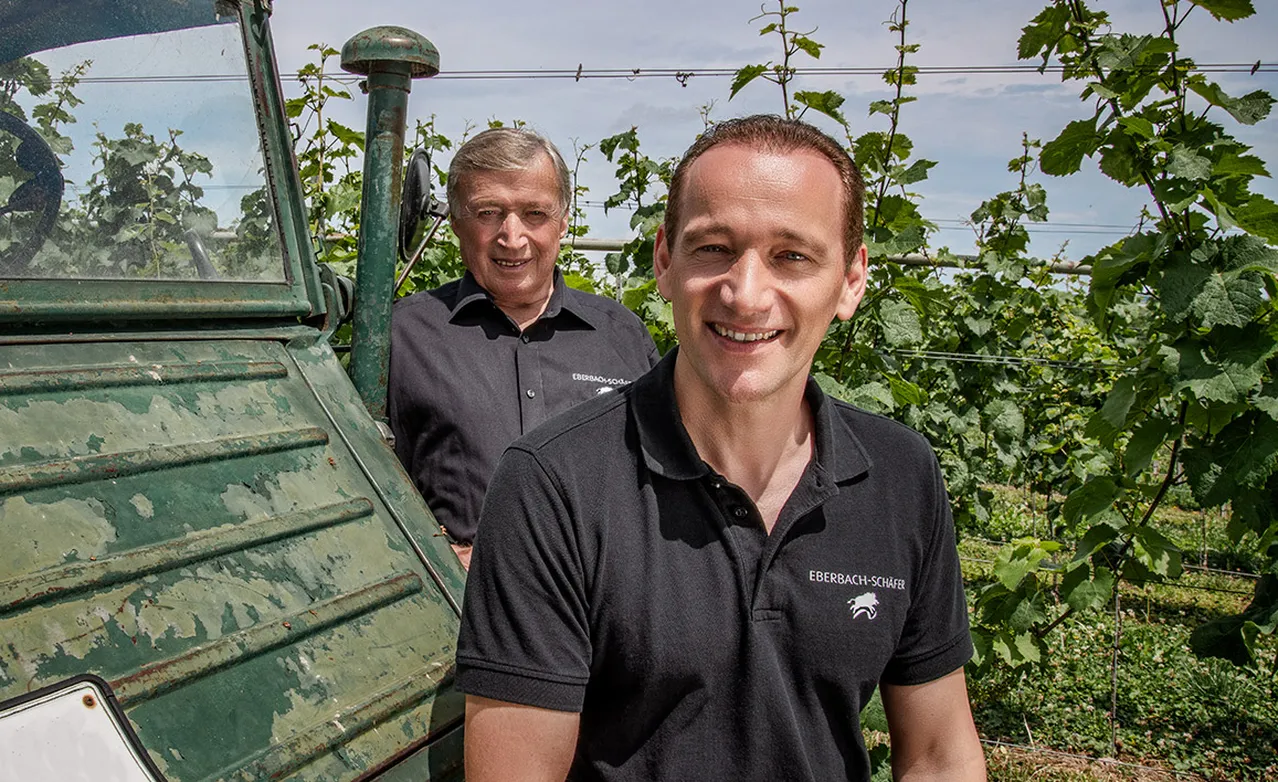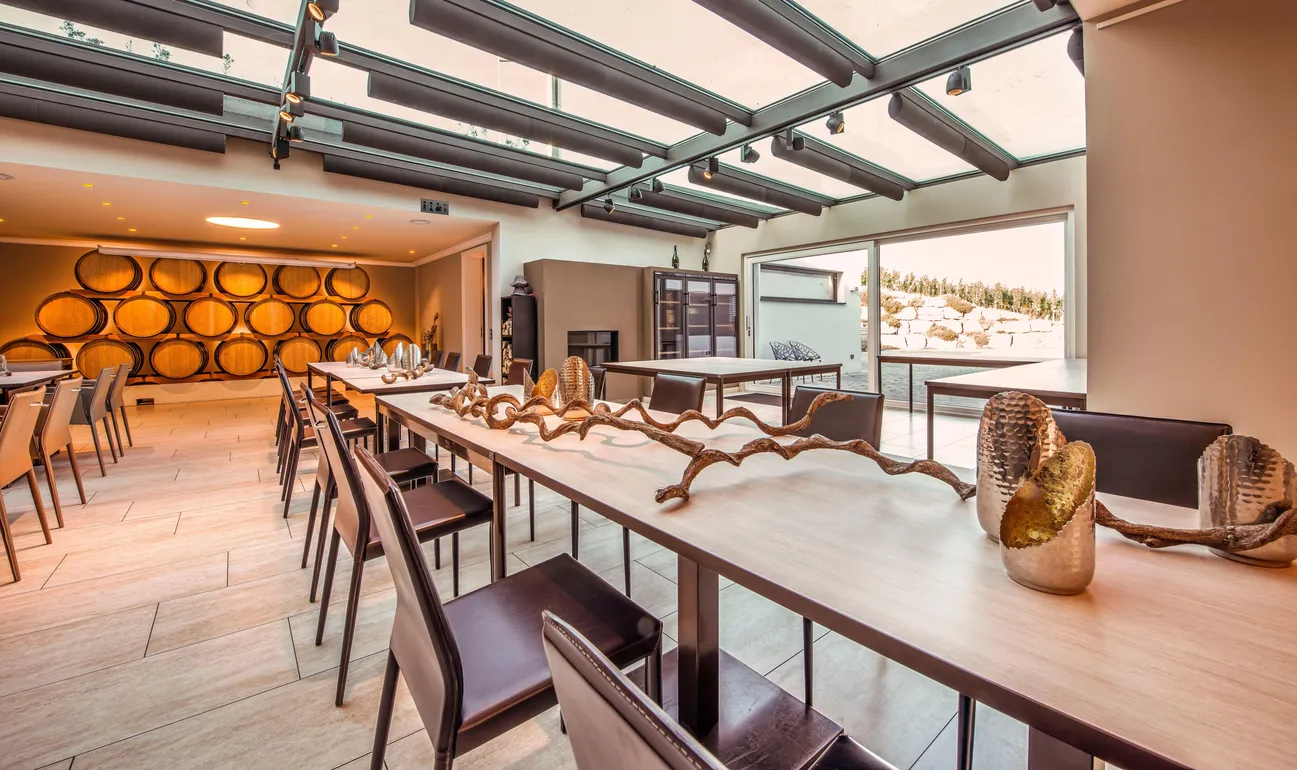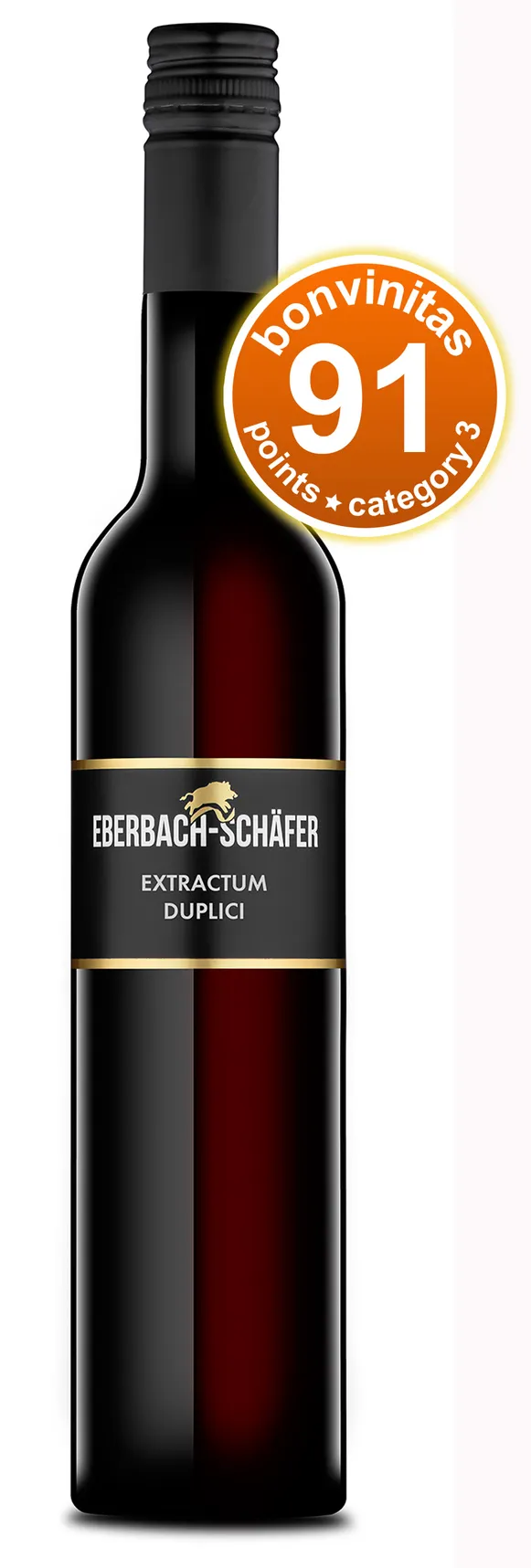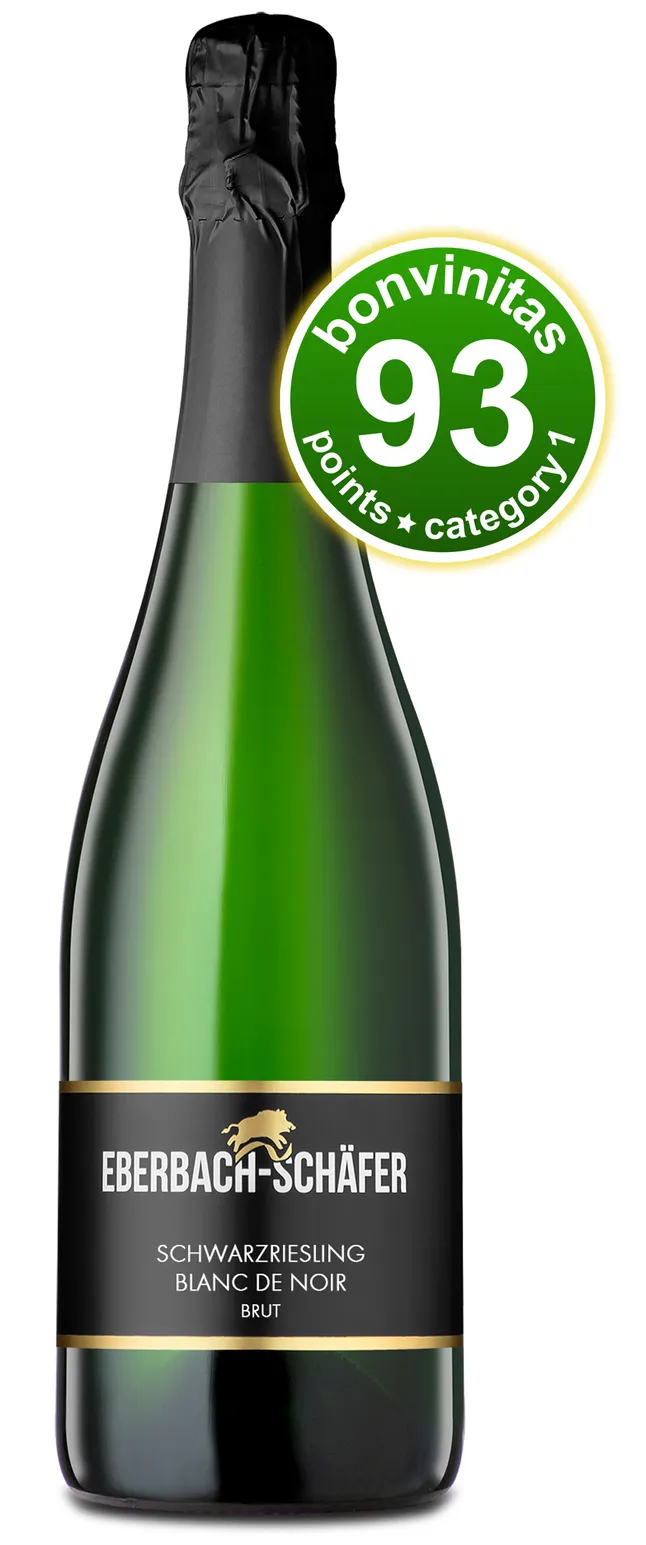A stunner of red wine: 'Cabernero', Cuvée Cabernet – 96 points: Privatkellerei Eberbach-Schäfer
Winner of the State Honorary Award Württemberg 2025
https://bonvinitas.com/media/reviews/photos/thumbnail/780x560c/20/ef/27/a-stunner-of-red-wine-cabernero-cuvee-cabernet-96-points-privatkellerei-eberbach-schaefer-13-1762944840.jpg2022 'Cabernero' Cuvée Cabernet dry
A real blast!
The nose alone is captivating with notes of cherry clafoutis, cassis, dark chocolate, and tar. Beneath the surface, a further wealth of aromas unfolds subtly, including vanilla, paprika, and black pepper. On the palate, it delivers a full-bodied power with fruity notes of sour cherry compote and more cassis, accompanied by soft tannins and peppery notes. The finish culminates in a crystalline minerality, once again delicately accompanied by fruit and peppery notes. It pairs perfectly with dishes such as ossobuco, pepper steak, and even heartier game dishes like hare stew.
The Privatkellerei Eberbach-Schäfer
 The family-run wine estate, located on the outskirts of Lauffen am Neckar, Germany, cultivates 30 hectares and is managed by Frieder Schäfer, a viticultural engineer from the renowned Geisenheim University. His favorite variety is Sauvignon Blanc, but he also grows Chardonnay, Riesling, and Pinot Gris, as well as PIWI varieties such as Sauvitage and Souvignier Gris, and others like the aforementioned Cabernet Sauvignon. The vines thrive primarily on limestone soils, which are particularly well-suited to Chardonnay.
The family-run wine estate, located on the outskirts of Lauffen am Neckar, Germany, cultivates 30 hectares and is managed by Frieder Schäfer, a viticultural engineer from the renowned Geisenheim University. His favorite variety is Sauvignon Blanc, but he also grows Chardonnay, Riesling, and Pinot Gris, as well as PIWI varieties such as Sauvitage and Souvignier Gris, and others like the aforementioned Cabernet Sauvignon. The vines thrive primarily on limestone soils, which are particularly well-suited to Chardonnay.
And there are plenty on offers: wine tastings and events in the large wine shop on the rooftop terrace, wine hikes, guided city tours in Lauffen, or wagon-drawn wine tastings through the vineyards. A real highlight is the winemaker's perfumes. "Winemakers' noses are particularly well-trained. That's why we've developed our own perfume line, using natural essential oils along with our own extracts, such as grape blossom extract. We offer a perfume that allows you to still taste wine after applying it," says Schäfer.
 Sustainability is a top priority, not just in viticulture. Electricity is largely supplied by a large photovoltaic system, and the winery also has its own spring water. To ensure clear tax separation, these operations, as well as the marketing of the wines, are handled by Privatkellerei F. Schäfer, the bottler, even though all the grapes come from the estate's own vineyards, Privatkellerei Eberbach-Schäfer. This is just for clarification, as it appears in the fine print on the labels. The name Eberbach comes from a branch of the family. In fact, after returning from World War II, Schäfer's grandfather chose to rebuild the wine estate as a direct marketer and refused to join the winegrowers' cooperative.
Sustainability is a top priority, not just in viticulture. Electricity is largely supplied by a large photovoltaic system, and the winery also has its own spring water. To ensure clear tax separation, these operations, as well as the marketing of the wines, are handled by Privatkellerei F. Schäfer, the bottler, even though all the grapes come from the estate's own vineyards, Privatkellerei Eberbach-Schäfer. This is just for clarification, as it appears in the fine print on the labels. The name Eberbach comes from a branch of the family. In fact, after returning from World War II, Schäfer's grandfather chose to rebuild the wine estate as a direct marketer and refused to join the winegrowers' cooperative.
A lighthearted, carefree feeling that's a lot of fun
Sekt brut, 2023 Schwarzriesling Blanc de Noir
BA (specific growing region) Württemberg, 12%, Privatkellerei F. Schäfer, which I also really enjoyed, so I rated it 93 bonvinitas points. Green dots represent category 1: dry up to 12%: A wonderfully fresh aroma, immediately appealing, with notes of grated lemon peel, Williams pear, and lemon jelly, subtly underscored by delicate hints of lemon zest and white pepper. It has very fine bubbles in the glass. On the palate, an elegant, pleasant mousseux unfolds, from which a very pronounced fresh fruitiness rises with hints of physalis, culminating in a buoyant lightness. Lovely, for example, with seafood, smoked trout fillets, or for a convivial late afternoon.
 Schwarzriesling , called Pinot Meunier in Champagne, is one of the classic varieties used to make the famous Champagne, also as Blanc de Noir, which means that the grapes go quickly from harvest to the press and are pressed immediately, so that the juice of the actually blue/red grapes remains light.
Schwarzriesling , called Pinot Meunier in Champagne, is one of the classic varieties used to make the famous Champagne, also as Blanc de Noir, which means that the grapes go quickly from harvest to the press and are pressed immediately, so that the juice of the actually blue/red grapes remains light.
Rich depth – interestingly slightly bitter – reminiscent of espresso
Extractum Dulpici, red wine made from dried grapes
 16.5%, F. Schäfer Private Winery – which I rated at 91 bonvinitas points. Orange = Category 3, wines with residual sugar: Fruity aroma with hints of cassis, elderberry juice, sea buckthorn, chocolate, and sultanas; on the palate, a powerful depth that immediately captivates with notes of dark chocolate, bitter almond, grape seeds, black pepper, and also gingerbread; with a finish that lingers with a lively bitterness enveloped in fruit, underpinned by black pepper reminiscent of coffee. Excellent, for example, as an aperitif, with Christmas cookies, or chocolate mousse.
16.5%, F. Schäfer Private Winery – which I rated at 91 bonvinitas points. Orange = Category 3, wines with residual sugar: Fruity aroma with hints of cassis, elderberry juice, sea buckthorn, chocolate, and sultanas; on the palate, a powerful depth that immediately captivates with notes of dark chocolate, bitter almond, grape seeds, black pepper, and also gingerbread; with a finish that lingers with a lively bitterness enveloped in fruit, underpinned by black pepper reminiscent of coffee. Excellent, for example, as an aperitif, with Christmas cookies, or chocolate mousse.
The points represent my personal opinion. I use the same rating system as for our bonvinitas group blind tastings for the bonvinitas wine guide.
Text: Dieter Simon, publisher and editor-in-chief of bonvinitas; Photos: PR






